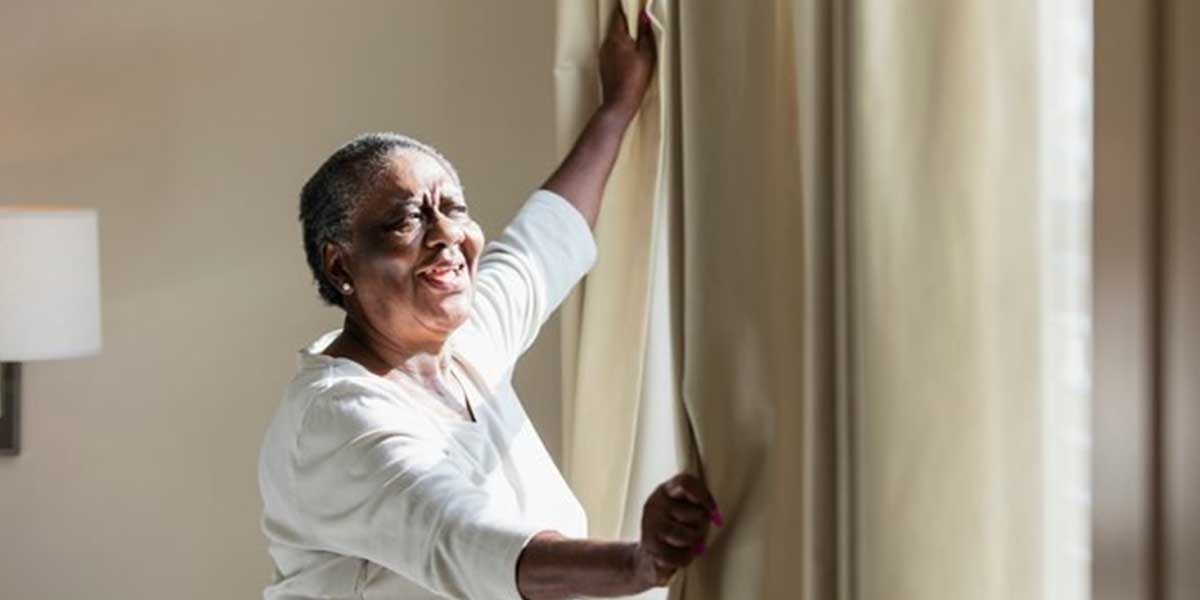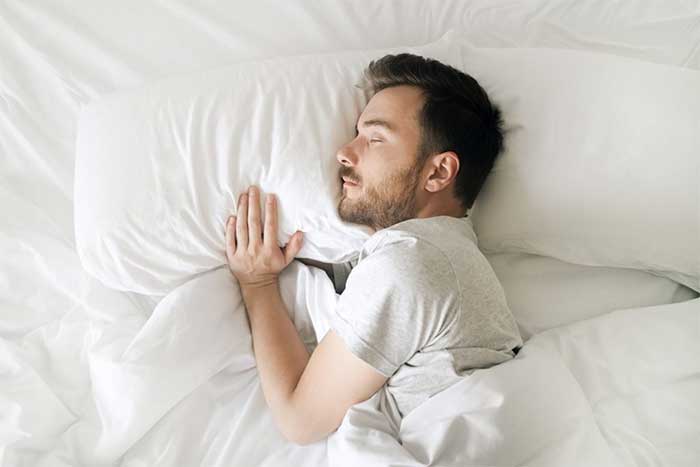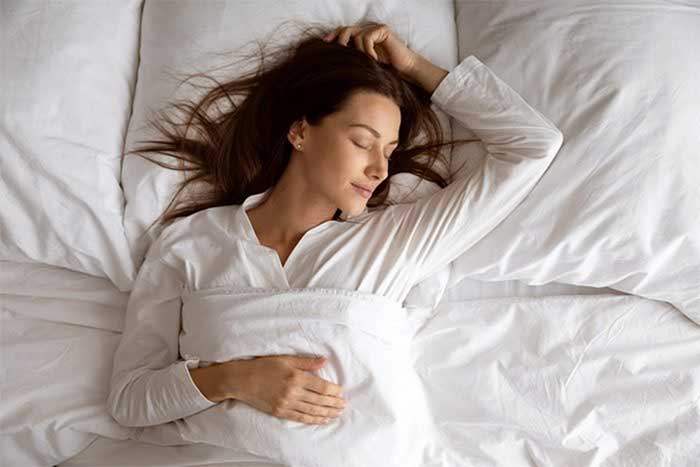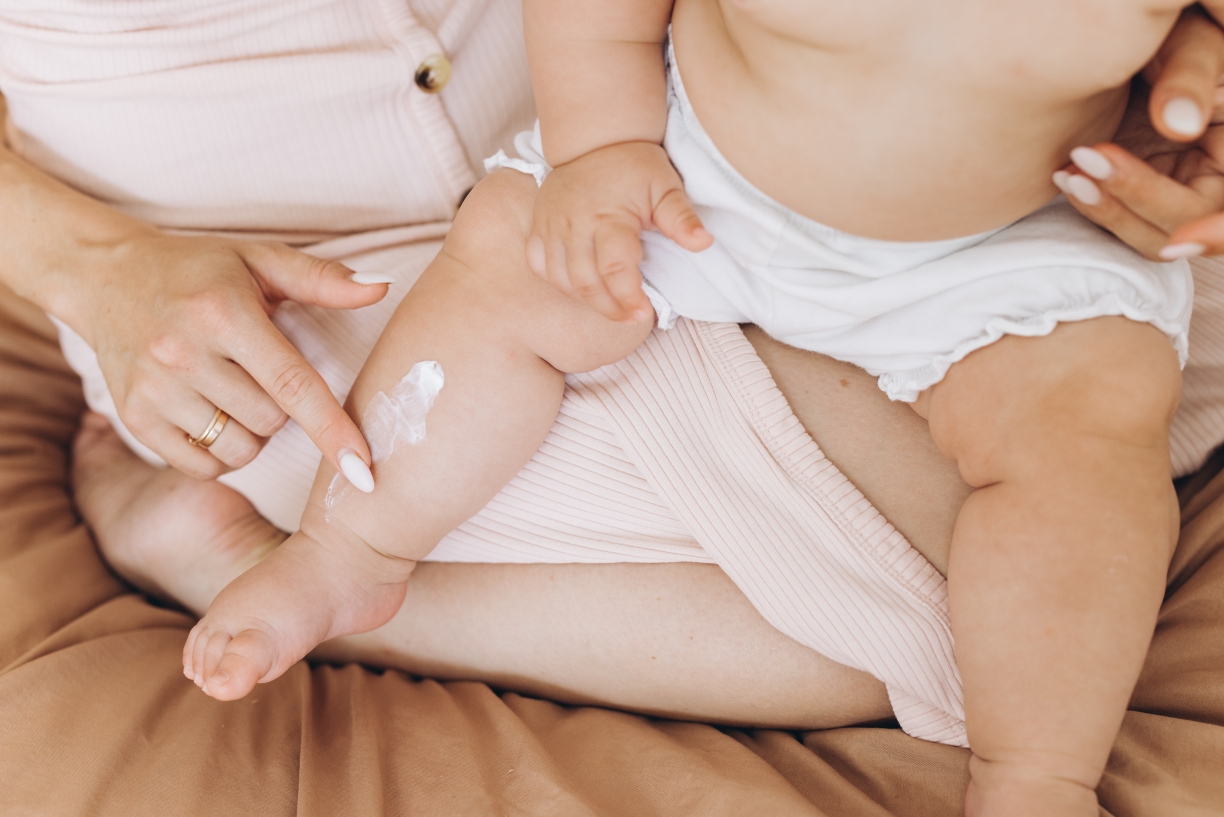By Karen Asp
Most people want to get more or better sleep. But besides just feeling refreshed when you wake up, working on your sleep habits can accomplish so much more to help your health. Getting up or going to bed earlier, taking a power nap, or stocking up on sleep can give you a better disposition, prepare your body for a grueling challenge, and help you feel more alert. Here are some small changes you can make to your sleep habits that will pay off with some big results.
For a more positive outlook: Rise early

Turns out, the early bird really does get the worm. A review of studies published in 2019 in Nature Communications found that people are more genetically likely to rise early. They may have a specific genetic component that lowers their risk of developing depression. One possible explanation? “Exposure to morning light helps your body produce mood-enhancing serotonin,” says W. Chris Winter, MD, director of Charlottesville Neurology and Sleep Medicine in Charlottesville, Virginia, and author of The Sleep Solution: Why Your Sleep Is Broken and How To Fix It. How to go from night owl to early bird?
Begin by waking up earlier so you’ll be sure to feel sleepy earlier in the evening (no fair hitting the snooze button!) And throw open the shades or turn on some lamps as soon as you wake up. The light will decrease your body’s production of sleep-inducing melatonin, making you feel more alert.
Snooze more the week before

Of course, skimping on sleep is never a good idea, but if you know you won’t be able to get the recommended seven to eight hours for a few days—maybe because of a work project—you can ward off some of the negative effects by “banking” extra shut-eye in advance.
In a 2015 study, published in the journal Sleep, people who did this scored better on cognitive tests than those who went through the week of shortened sleep without having logged extra Zzzs. During that first week, participants slept about two additional hours each night, averaging about eight hours total. Researchers suspect that routinely getting more sleep may prevent the accumulation of sleep debt.
To feel more alert: Take a mid-afternoon power nap

When first-year medical residents rested in the mid-afternoon for 20 minutes (almost half of which was spent sleeping, on average), they were more alert and scored better on mental tasks than peers who rested but stayed awake, according to a 2012 study published in Academic Medicine. For an ideal energy jolt, plan that nap between 1 and 2 p.m. when your body clock is naturally sleepiest. Don’t nap longer than 30 minutes or you could interrupt your nighttime sleep or experience sleep inertia, where you wake up feeling completely groggy. That nap can also help you retain new information, says Penelope A. Lewis, PhD, a neuroscientist at the University of Manchester and author of The Secret World of Sleep. That could benefit you if you’ve got something big—like a presentation—scheduled for that afternoon.
To run a faster 5K: Go to bed earlier
For a 2011 study published in the journal Sleep, male basketball players were encouraged to sleep as long as possible with a minimum goal of 10 hours a night (most averaged 8.5 hours). Over a five- to seven-week period, they improved their free throw shooting accuracy and sprint times. Even if you’re a recreational athlete training for an event like a 5K, your body will naturally need more sleep, which could benefit your physical performance.
“When you get the proper amount of sleep, your glucose metabolism increases, which gives you more energy, “says James B. Maas, PhD, international sleep educator and co-author of Sleep to Win! “Cortisol levels decrease to reduce stress. Growth hormones increase, which benefit muscle and bone development, and variables like reaction time, coordination, and recovery speed improve.” He says research has found that sleep deprivation is responsible for 90 percent of overtraining injuries.
For healthiest overall slumber: Sleep on your back

Or so suggests the National Sleep Foundation. Although only around 8 percent of people sleep on their backs, it’s the healthiest option for most people since it allows your head, neck, and spine to rest in a neutral position. It’s also ideal for warding off heartburn.
A close second? Sleeping on your side. Preferred by most, according to a study published in 2017 in Nature and Science of Sleep, it also helps decrease acid reflux and wards off back and neck pain. Plus, you’re less likely to snore in this posture because it keeps airways open.
In the end, “the best sleep position is the one that’s most comfortable to you—and your body will naturally move a couple of times in the night whether you realize it or not,” says Michael Grandner, PhD, director of the Sleep and Health Research Program at the University of Arizona in Tucson. “Laying on your stomach is often uncomfortable for most people and can make it hard to breathe at night, waking you up. Similarly, being on your back might be more comfortable for some people with pain, but is more likely to lead to snoring and breathing issues at night. Side sleeping is probably the most restful for most people.”
Power down at least 30 minutes before bedtime
Using some sort of tech device in the hour before bed—as 9o percent of people do—does a number on your body’s internal clock, suppresses the release of the sleep-inducing hormone melatonin, and makes it tougher to fall asleep. A review of studies published in 2015 in Chronobiology International shows that regular exposure to artificial light at night also raises the risk for breast cancer and has negative effects on cardiovascular health.
“There are three ways that technology gets in the way of healthy sleep,” says Grandner. “First, the light can stimulate a daytime signal in the brain, making it more difficult to sleep. Second, the mental stimulation and endless scrolling can be mentally and physically activating. Third, they can be so distracting that time goes by without any extra real relaxation benefit.”
No one’s suggesting you give up tech. Just turn off your TV, tablet, smartphone, laptop, or other electronic device at least 30 minutes before bedtime. (https://www.thehealthy.com)





















